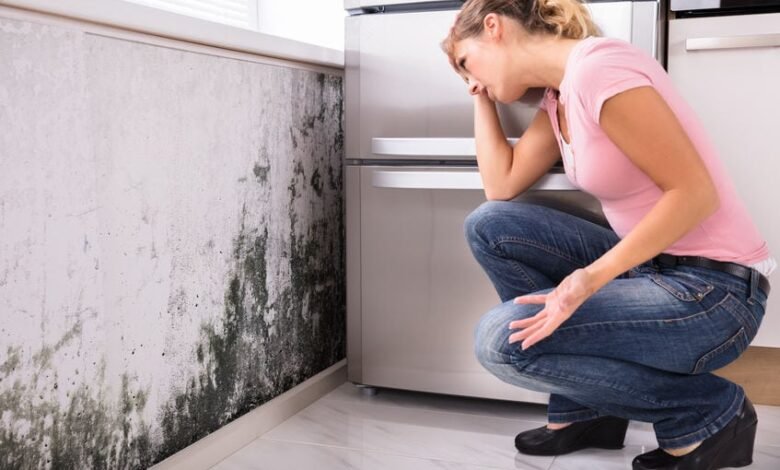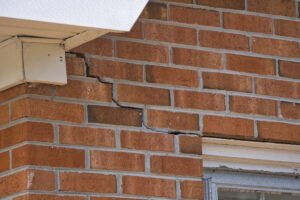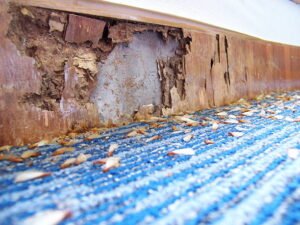What does a Housing Disrepair Team do?

Explanation of Housing Disrepair
Living in a home that is safe and comfortable is something everyone deserves. However, sometimes homes can have problems that make them unsafe or uncomfortable to live in. These problems can include things like leaky roofs, broken heating systems, damp walls, or faulty plumbing. When a home has these issues, it is known as housing disrepair.
Housing disrepair can cause a lot of stress and inconvenience for tenants, affecting their health and well-being. That’s where a housing disrepair team comes in. This team is a group of professionals who work together to fix these issues and ensure that homes are safe and livable. Their work is essential because it helps improve the quality of life for people living in affected homes.
Purpose of the Article
The purpose of this article is to inform readers about the important roles and responsibilities of a housing disrepair team. By understanding what this team does, tenants can better advocate for their rights and ensure that their homes are properly maintained. We will explore how these teams assess and fix disrepair problems, communicate with tenants, and ensure that homes meet legal standards. Whether you’re a tenant dealing with disrepair issues or someone interested in housing maintenance, this article will provide valuable insights into the essential work of housing disrepair teams.
Understanding Housing Disrepair
Common Issues in Housing Disrepair
Housing disrepair refers to problems in a home that make it unsafe or uncomfortable to live in. Here are some common issues that can occur in a house:
Dampness and Mold
When a home has leaks or poor ventilation, it can lead to dampness. Dampness can cause mold to grow on walls, ceilings, and floors, leading to health problems.

Broken Plumbing
Plumbing issues like leaky faucets, clogged drains, or broken pipes can cause water damage and make daily activities difficult.

Structural Issues
Problems with the structure of a house, such as cracks in the walls, a leaking roof, or unstable foundations, can make the building unsafe.

Faulty Heating and Electrical Systems
Heating systems that don’t work properly can make a home too cold, while electrical problems can be dangerous and lead to fires.

Pest Infestations
Problems with the building’s structure can also lead to pest infestations, such as rodents or insects entering the home, causing further damage and health issues.

Impact on Tenants
When a home has disrepair issues, it can seriously affect the tenants living there. Here’s how these problems impact tenants’ lives:
- Health Risks: Dampness and mold can cause respiratory problems, allergies, and other health issues. Broken plumbing can lead to sanitation problems, increasing the risk of illness.
- Safety Concerns: Structural issues and faulty electrical systems pose significant safety hazards, putting tenants at risk of injury.
- Stress and Discomfort: Living in a home with constant repairs needed can be stressful and uncomfortable. It can disrupt daily life and lead to emotional distress.
- Financial Strain: Disrepair can result in higher utility bills and repair costs, adding financial pressure on tenants.
- Reduced Quality of Life: Overall, housing disrepair can reduce the quality of life for tenants, affecting their comfort, health, and peace of mind.
Understanding these common disrepair issues and their impact highlights why it’s crucial for housing disrepair teams to address and resolve them promptly. Ensuring a safe and healthy living environment is essential for the well-being of tenants.
What is a Housing Disrepair Team?
A housing disrepair team is a group of professionals dedicated to fixing problems in homes that make them unsafe or uncomfortable to live in. These teams play a crucial role in ensuring that housing is maintained to a suitable standard, protecting the rights and well-being of tenants. The team typically includes surveyors who assess the damage, repair specialists who carry out the necessary work, and legal advisors who handle any legal issues that may arise between tenants and landlords. Together, they work to identify, prioritize, and resolve disrepair issues, ensuring that homes are safe and habitable.
Roles and Responsibilities of a Housing Disrepair Team
Assessment and Inspection
The first step a housing disrepair team takes is to conduct thorough inspections of the property to determine the extent of the damage. This involves visiting the home, identifying all areas of concern, and documenting the issues. The team assesses each problem’s severity to understand what repairs are necessary and how urgently they need to be addressed. This detailed assessment forms the foundation for creating a comprehensive repair plan tailored to the specific needs of the property.
Prioritizing Repairs
Once the assessment is complete, the housing disrepair team prioritizes the repair work based on urgency and severity. Issues that pose immediate safety risks, such as electrical faults or structural weaknesses, are addressed first to ensure the safety of the tenants. Problems that affect the quality of life, like heating or plumbing issues, are also given high priority. By effectively prioritizing repairs, the team ensures that the most critical issues are dealt with promptly, minimizing risk and discomfort for tenants.
Coordinating Repairs
After setting priorities, the team coordinates with contractors and schedules the necessary repair work. This involves finding the right specialists for each job, negotiating timelines, and managing resources to ensure repairs are completed efficiently. The team acts as a bridge between the contractors and the tenants, ensuring that repairs are done to a high standard and within the agreed timeframe. Effective coordination is key to minimizing disruption and ensuring that all repairs are carried out smoothly.
Communication with Tenants
Communication with tenants is a vital part of the housing disrepair team’s responsibilities. They keep tenants informed about the repair process, timelines, and any potential disruptions. By maintaining clear and open communication, the team helps manage tenant expectations and alleviate any concerns they may have. This transparency builds trust and ensures that tenants feel supported throughout the repair process.
Monitoring and Follow-Up
Once repairs are underway, the team continuously monitors the progress to ensure that the work meets the required standards. They conduct follow-up inspections to verify that all issues have been addressed and that the property is safe and habitable. If any problems persist, the team takes further action to rectify them. This ongoing monitoring and follow-up ensure that repairs are not only completed but also effective, providing long-term solutions to housing disrepair issues.
The Legal Aspect of Housing Disrepair
Tenants’ Rights and Legal Obligations
Tenants have specific rights when it comes to housing disrepair, including the right to live in a safe and well-maintained home. Landlords and housing authorities have legal obligations to address disrepair issues promptly and maintain the property to an acceptable standard. If these obligations are not met, tenants have the right to seek legal recourse to ensure their homes are repaired.
Role of the Team in Legal Matters
The housing disrepair team often assists in legal disputes between tenants and landlords. They provide evidence of disrepair, help tenants understand their rights, and may work with legal advisors to resolve disputes amicably. By facilitating legal processes, the team ensures that tenants’ rights are protected and that landlords fulfill their obligations, fostering a fair and just resolution to any conflicts.
Benefits of a Housing Disrepair Team
Improved Living Conditions
One of the primary benefits of a housing disrepair team is the improvement of living conditions for tenants. By addressing and resolving disrepair issues, the team ensures that homes are safe, comfortable, and conducive to good health. This not only enhances the quality of life for tenants but also contributes to their overall well-being.
Enhanced Tenant Satisfaction
When housing disrepair issues are addressed promptly, tenant satisfaction increases. Knowing that there is a dedicated team working to maintain their homes builds trust and confidence in the housing provider. Satisfied tenants are more likely to have positive relationships with their landlords and to remain in their homes for longer periods.
Prevention of Further Damage
Timely repairs help prevent further damage to the property, which can lead to more significant issues and higher repair costs in the future. By acting quickly, the housing disrepair team minimizes damage, reduces costs, and preserves the integrity of the building. This proactive approach is beneficial for both tenants and landlords, ensuring the property remains in good condition.
Challenges Faced by Housing Disrepair Teams
Resource Limitations
One of the challenges faced by housing disrepair teams is limited resources. Budget constraints and the need to allocate resources effectively can make it difficult to address all disrepair issues promptly. This can lead to delays in repairs and affect the team’s ability to meet tenants’ needs.
Coordination and Communication Hurdles
Coordinating with contractors and maintaining clear communication with tenants can also be challenging. Miscommunications or scheduling conflicts can lead to delays and misunderstandings, affecting the repair process. Effective coordination and communication are essential to overcoming these hurdles and ensuring successful repairs.
Conclusion
Summary of Key Points
In summary, a housing disrepair team plays a vital role in maintaining safe and comfortable living conditions for tenants. By assessing, prioritizing, and coordinating repairs, they ensure that disrepair issues are addressed promptly and effectively. The team’s work enhances tenant satisfaction, prevents further damage, and supports tenants’ legal rights.
Final Thoughts
Efficient housing disrepair management is crucial for ensuring better living conditions and protecting tenants’ rights. The dedication and expertise of housing disrepair teams are essential in achieving these goals, making them a valuable asset to any housing provider.
Call to Action
Encouragement for Tenants
Tenants are encouraged to report any disrepair issues promptly to ensure that their homes are maintained in good condition. Early reporting helps the housing disrepair team address problems quickly, preventing further damage and ensuring a safe living environment.
Contact Information
If you are experiencing housing disrepair issues, it’s important to reach out to a professional team that can help. The Housing Disrepair Team is available to assist you with any problems you may encounter. They have the expertise and resources needed to ensure your home is safe and comfortable.
To contact the Housing Disrepair Team, you can visit their website at https://housingdisrepairteam.org.uk. On the website, you will find more information about their services, as well as options to get in touch with their team of experts. Whether you need to report a repair issue, seek legal advice, or simply want to learn more about your rights as a tenant, the Housing Disrepair Team is ready to assist you.
Don’t hesitate to reach out and ensure your living conditions are up to standard. Your home is important, and the Housing Disrepair Team is here to help maintain it for you.



